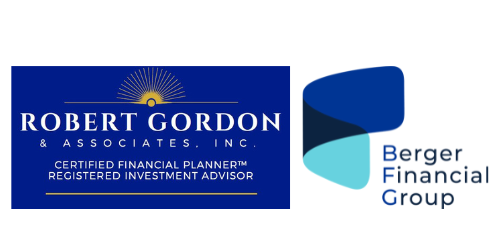5 Reasons Roth IRAs Won’t Be Taxed
Submitted by Robert Gordon & Associates, Inc on July 20th, 2020
The rationale for speculation over taxing Roth IRA withdrawals is that the tax break looks far too generous. Other tax-sheltered retirement plans, after all, are merely tax-deferred—meaning you’ll pay taxes on them eventually. The earnings on Roth IRAs are effectively tax-exempt.
But as much as taxing Roth IRA withdrawals may seem inevitable at some point, there are at least five reasons it probably won’t happen.
1. Roth Contributions Aren't Tax-Deductible
You pay taxes on your Roth IRA contributions. The dollars deposited into a Roth are after-tax dollars. So, you don't get an upfront tax break, but qualified withdrawals are tax-free.
In contrast, contributions to traditional IRAs are pre-tax dollars. If you meet the income limits, you can deduct your contributions when you file your income tax return. That lowers your taxable income for the year and saves you money on taxes. Since you get that upfront tax break, you pay taxes later, when you withdraw funds from a traditional IRA.
2. Roth IRAs Help Build the Nation
We like to believe that the primary purpose of establishing tax-sheltered retirement plans is to help people prepare for retirement. But there are other factors that operate at a macro level.
Every nation needs a capital base upon which to build and expand its businesses and industries. That means somebody somewhere needs to be saving money that will eventually find its way into investments like stocks, bonds, and real estate.
Also, large federal deficits mean that there has to be capital willing and available to buy the government’s debt.
However, Americans are notorious for being non-savers except in tax-sheltered retirement plans. No matter what methods the government may use to try to raise tax revenue, retirement plans are likely to retain their favored tax status.
Favorable tax treatment is a big reason why anyone invests in a retirement plan. If the tax benefits go away, so do the plans, and a big chunk of the nation’s capital base goes with it. That would lead to even bigger fiscal problems than we have now.
This leads us neatly to the next reason why Roth IRA withdrawals are unlikely to be taxed.
3. A Tax on Withdrawals Would End Roth IRAs
If Roth IRA withdrawals were taxed, it would almost certainly kill the program. Tax-free withdrawals are the special sauce that seasons this investment dish. Take it away, and you’re basically left with just another tax-deferred savings account, and we already have several of those.
The Roth IRA program is growing rapidly, making ever-larger contributions to the nation’s economy. We can rest assured the government has no interest in ending the program, which is exactly what would happen if withdrawals were made taxable.
4. Roth IRAs Are Comparatively Small Potatoes
Although they are increasingly popular, Roth IRA plans remain a relative lightweight in the retirement-plan lineup. They’ve only been in existence since 1997. And in dollar terms, the annual contribution limits are relatively low.
For tax years 2019 and 2020, the most you can contribute yearly to a Roth IRA is one of the following:
- $6,000, if you're under age 50
- $7,000 if you're age 50 or older
Compare that to 401(k) plans. They've been around since 1978, and the 2020 contribution limits are $19,500 ($19,000 for 2019) and $26,000 ($25,000 for 2019) if you're age 50 or older, plus employer matches.
If your employer adds a match, it doesn't count toward your contribution limit. But the IRS does cap the total combined contribution limit by you and your employer for 401(k)s. For 2020, that's:
- $57,000 ($56,000 for 2019) if you're under age 50
- $62,000 if you're age 50 or older
- 100% of your salary (if it's less than those dollar limits)
If the government were to look for tax revenues, 401(k) plans would offer a much richer source.
5. If Roth IRAs Are Taxed, Participation Will Be Grandfathered
How can we know this for sure? Just read the tax code. It’s filled with special provisions. Look for the prefix “pre-” followed by a date, or “post-” followed by a date. You can find them all over the IRS regulations.
Whenever these words appear, it usually means that a special allowance has been made for anyone who participated in a program before the regulations were changed. This will almost certainly be the case if Roth IRA withdrawals are made taxable at some point in the future.
Based on what we know today, you can continue funding your Roth IRA and do it with confidence. Your future self will thank you.

